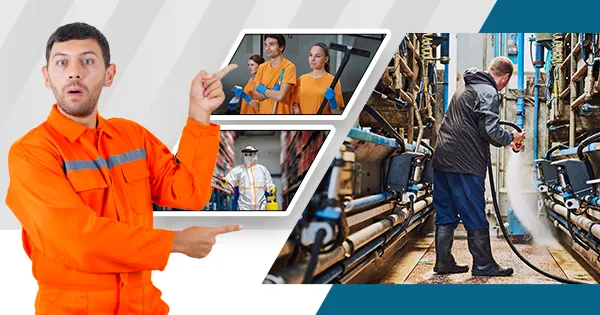Industrial machinery plays a vital role in production efficiency, and its performance can significantly impact business operations. Regular maintenance ensures machines run smoothly, but often, the cleaning aspect is overlooked. Deep cleaning is a crucial practice that not only extends the life of equipment but also enhances operational performance.
Why Clean Machinery Matters
Dirt, dust, and residues can accumulate over time, leading to wear and tear, inefficiencies, and even breakdowns. Maintaining clean machinery reduces the risk of malfunction, ensures safety, and improves productivity. Regular cleaning minimizes downtime and helps machines operate at optimal levels.
The Benefits of Deep Cleaning for Industrial Equipment
Deep cleaning goes beyond standard cleaning practices. It involves thorough removal of contaminants, buildup, and debris that regular maintenance may miss. Benefits include:
- Improved Efficiency: Machines perform better when all components are clean and free from obstruction.
- Extended Lifespan: Reduced wear and tear helps in prolonging the equipment’s operational life.
- Enhanced Safety: Clean machinery minimizes risks of accidents caused by dust, oil, or residue buildup.
- Reduced Downtime: Preventive deep cleaning decreases the likelihood of unexpected breakdowns.
Specialist Cleaning for Complex Machinery
Some industrial equipment requires expert handling due to intricate designs or sensitive components. Specialist cleaning services ensure that these machines receive the attention they need without risk of damage. Professionals use appropriate techniques and tools to clean hard-to-reach areas, maintaining both performance and safety standards.
Integrating Deep Cleaning into Maintenance Schedules
Incorporating deep cleaning services into regular maintenance schedules is essential for industrial operations. By setting periodic deep cleaning sessions, companies can prevent buildup and maintain optimal performance. A structured cleaning routine also helps in identifying potential issues early, saving costs on repairs and replacements.
Conclusion
Deep cleaning is not just about cleanliness; it is a strategic approach to boost industrial machinery performance. Combining deep cleaning with specialist cleaning practices ensures efficiency, safety, and longevity of equipment. Investing in professional cleaning services is a smart move for any business looking to maintain peak operational performance.


